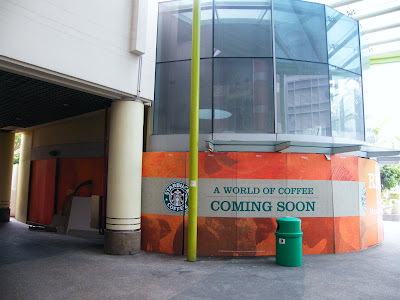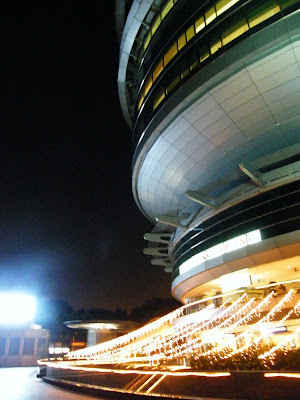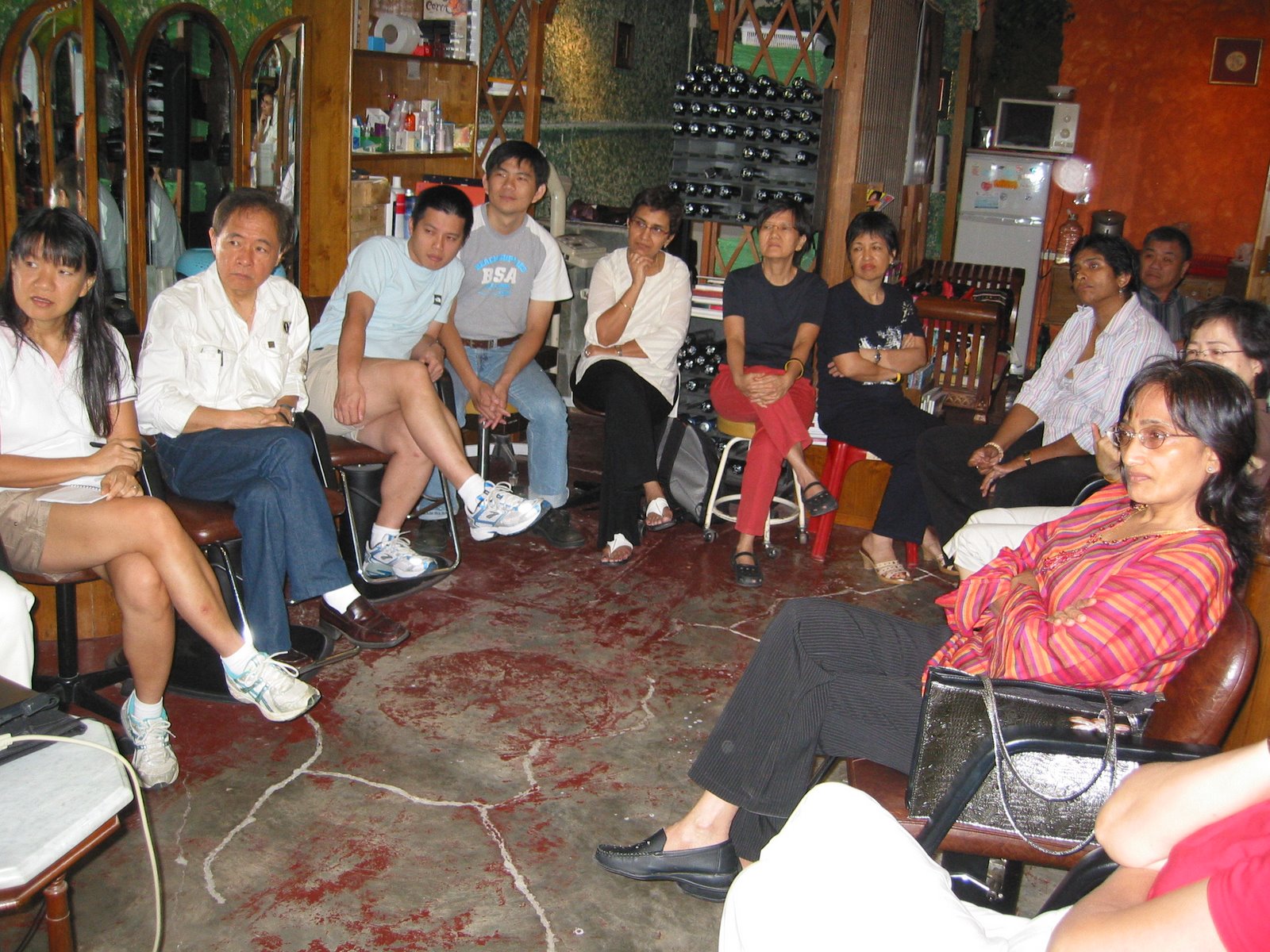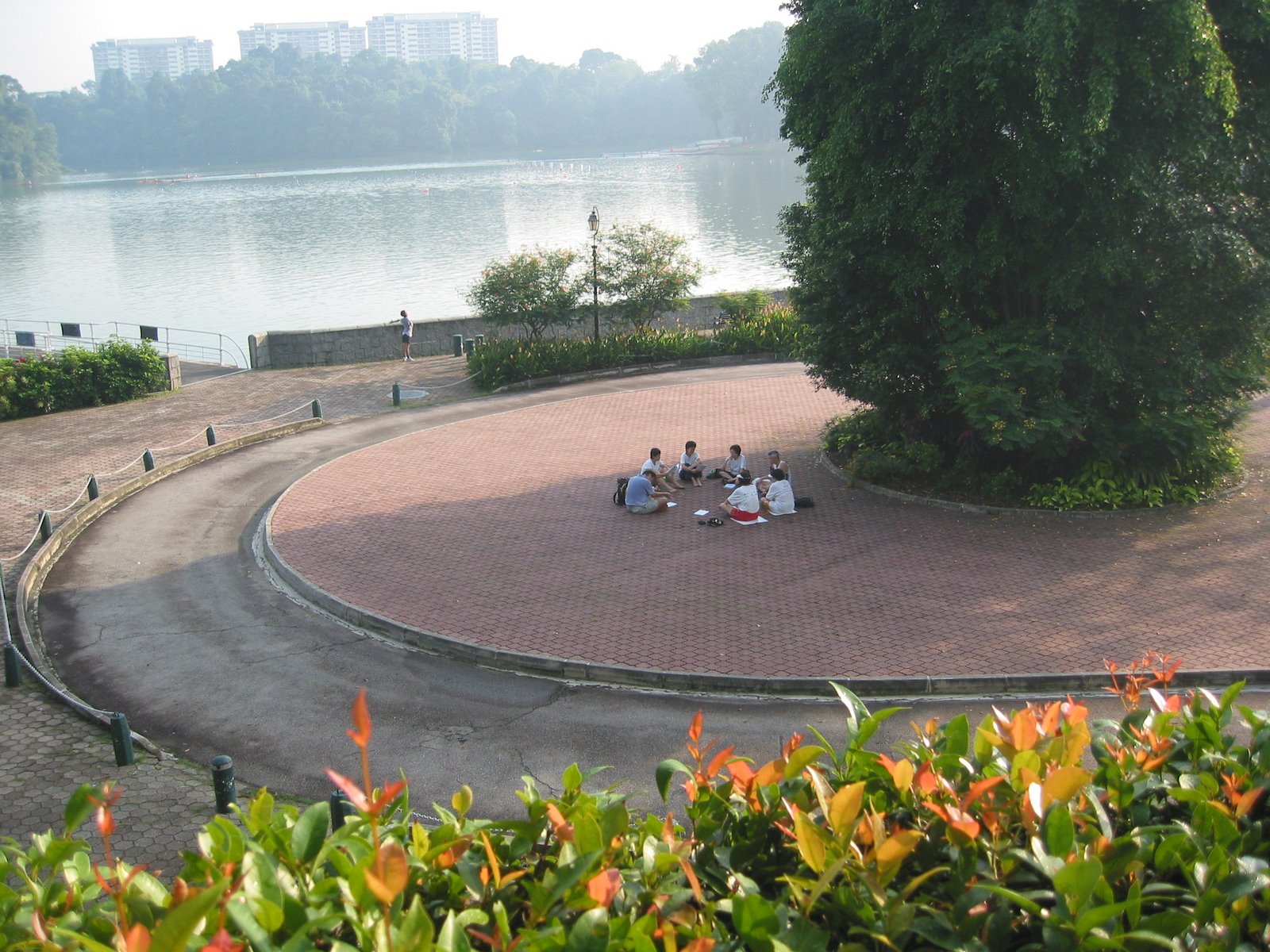
During breakfast, prior to the session proper, I met a new comer to the Bucky Group, Law, who said (in jest) that he is not doing much now because nobody will employ him at his age. Immediately, it flashed on me that there must be an untapped source of highly talented and experienced professionals ready to serve. Hmmm... I'll revisit it in time to come. Looks like an opportunity!
.
.
.
.
The second video is by Joseph Pine on "What do Consumers Really Want?"
.
.
Discussion:
.
Discussion:
Me: I feel that while I admire what is presented in both of the videos, they are both subjects that are likely to interest people in the developed countries more. The one about art is of little value to people in the developing countries.
Flip: Is Singapore a developed or developing country?
.
Me: Somewhere in between. A developing country (in simple terms) has a significant number of people who mainly worries about putting three meals on the table. They would not be interested in such thoughts.
.
Hlm: But art is an expression and should not be discussed as economics, and in this case, Art sends messages to the public. You can't say it has no value.
.
Me: I can express those messages more cheaply.
.
Hlm: Well, if I tell someone "Everyone just want to be right", it won't give the same effect as seeing those installations.
.
Me: But in this case, it gives 'little value' (not 'no value'). These installations are expensive and will not benefit many people. They are good for the artist, otherwise, with such creative thoughts and not being able to express them, they will go mad.
.
Mya: ... and there are some Singaporeans whom I know who left Singapore because they could not express themselves here. Like you say, they can go mad unable to express here. It is like if I go out and buy a piece of art, if I cannot relate to that art, I won't buy it. So those art that I end up buying are either those that I would express the same way, except that I didn't know how to, or art that is customised for me, that I asked the artist to do what I want.
.
Me: Actually, that goes to 'shopping' in general, not only shopping for art. For instance, if it is a lovely pair of shoes. They are what you would like to express yourself in, but since you don't know how to manifest your expressions (or make those shoes), you buy them.
.
*laughters and Mya nodding in agreement*
.
XX: Art is an expression. Why do you say it has no value?
.
Me: Haiz. You are not listening...
.
Hlm: You can't say that it is not benefiting many people. The messages that are expressed will benefit someone who may be very poor, worrying about three meals a day, but still able to appreciate such art.
.
Me: *Disagreeing* I know that in Singapore, the common folks who are struggling to put three meals on the table will not bother with such art. They won't be in the frame of mind. If you go to the heartland coffeeshops, you will hear them utter (in Hokkien), something to the effect of, "Aiya, these people have eaten to a full stomach and has nothing better to do...".
.
Mya: You may be right about such expensive high class installations not reaching everyone, but there will be a section of community that can afford such art and these people need such kind of art so that they will listen to the message.
.
Me (thoughts): I think that is very profound and appropriate. Another business opportunity?? :)
.
Joo Hock: My mother is not highly educated in art, but somehow she knows how to appreciate Teochew opera.
.
Vasu: Art is an expression and has always been there. In tribal societies, there have always been paintings, dances, songs...etc, that are understood by all. That's because there isn't the commercialisation and elitism of their art form.
.
Me: Also tribal art is more confined to the tribe and happens on a smaller scale. I've discussed about Art in the Futurists' Society and at the end, I have asked a participant who is an artist and Masters degree student in fine arts, if it would have been easier to understand if we did not include 'money' in the discussions, and she replied that it would not be meaningful doing so. This is because money is so imbued into the modern artist that it is very difficult to separate the two.
.
Vasu: Both Michaelangelo and Leonardo da Vinci sculptured and painted for money too!
.
Me: But that happened in a 'cultured' society and not a tribal one.
.
Hlm: We shouldn't be seeing art from an economic perspective. Art is an expression, and through such expressions enhance society.
.
Me: Now you are discussing art without the factor of money! *grin*
.
Flip: But do you know that there are poor people in Holland too! Even with the social security handouts or people who falls outside the safety net, life is hard. The United States too, there are even more poor people, and they are a rich country.
.
Me: It is all relative. There are some countries who are even worse off and have no social security handouts. Anyway, people who are at the survival mode will not have the mind to appreciate such art. They will also have a different approach to what is entertainment to them. They will not be looking out to go for an authentic experience. In the developed countries, there will be more people going for the authentic experience as their entertainment. Which brings us to the second video.
.
Me: People who are still struggling with putting meals on the table in developing countries do not have a mindset that desires an authentic experience. They will go out enjoy themselves and that's it. In developed countries, there are more people that has the desire to go for an authentic experience.
.
Flip: But how can you say what is authentic what is not? If I go out, have a good time and enjoy it, then it is an authentic experience.
.
Me: You may enjoy it, but it may not be an authentic experience.
.
Flip: But I truly enjoy it and it is authentic to me.
.
Me: Authenticity is not necessarily an individual experience. They are also based on certain historical and traditional practices or acceptance by respected critiques of the subject. For instance, there are ang mohs (Caucasians) that go to Chinese restaurants and the waiters can already predict that they are going to eat Sweet-and-Sour Pork and Fried Rice. These dishes are created by the chefs to appease the Western palate and are not cooked in the authentic Chinese way, but Caucasians love them. These customers love them and enjoy themselves thoroughly, even giving generous tips and praising the chef for their wonderful culinary skills...etc, but they are not authentic experiences.
.
Flip: You are saying that authentic experience need to be based on a product, I am saying that it depends on personal experience.
.
Me: There must be some measure to what 'authenticity' is, it can't just be a personal experience of something that is not authentic in a subject domain.
.
Dictionary.com's definition of 'authentic' (in this context):
1. not false or copied; genuine; real
2. having the origin supported by unquestionable evidence; 3. entitled to acceptance or belief because of agreement with known facts or experience; reliable; trustworthy: |
.
In the video:
The speaker said, "There is no such thing as a experience that is 'not authentic'", which implies that as long as the person experienced it wholeheartedly, then it is 'authentic'. However, he also says further that there are two dimensions to the experience. One is what is true to yourself, and the other is what is true to others.
.
My note:
Putting the video and dictionary definitions together, I infer that in the case of the Caucasian eating non-authentic cuisine in a Chinese restaurant, it would be a Fake-Real experience. That means he enjoys it thinking that it is 'authentic', but by true Chinese standards, it is all fake. That means the Caucasian customer is true-to-himself, but his experience of what is to him an 'authentic' experience, is not true to others, especially to true Chinese cuisine lovers. It is like going to Disneyland and truly enjoying it, clearly knowing that the Magic Kingdom is not real (authentic)!
.
Me: My point is that the poor (includes poorly developed mental attitudes) in developing countries, do not go out to desire an authentic experience . They go out to have a good time, but there are more people in the developed countries that desire to go for an authentic experience (Real-Real experience according to the video). It is this DESIRE, that I am talking about - the attempt to experience something authentic.
.
Joo Hock then asked those who have been quiet if they have any opinions...
Law: The second video did not define what 'authenticity' really is, and that is why I think we got into this arguments.
.
At this point the discussion is getting rather heated, and Joo Hock intervened politely...
Joo Hock: We can say that our Bucky Group sessions are 'Real-Real experience'. We are open to speak our mind and even learn to agree to disagree. But if I may say, you do get a bit aggressive today, for instance when XX was only asking you a question and you brushed him off.
.
Me: But he was not listening. Despite having explained twice, he still thinks that I say "Art has no value". (Personally, I think people who do not listen and come up with questions that follow up with the discussion, do not earn their right to a reply, as they are dragging the group back to the beginning of the discussion.)
.
* Now, feeling ever more frustrated *
Me: I not trying to be right! I am only trying to be clear. Some people here do not listen. Why not listen first and then disagree with me to your heart's content? Then if I am wrong, that is fine. I would have learned something. But if I say something, then you reply with an understanding that is 180 degrees different from what I just said, then it is futile.
.
Flip: Now, if you are explaining something and we don't understand, who should be doing more to improve it.
.
Me: Me. That is why I am trying so hard to explain it and you guys have no patience to listen.* laughters* And I have no patience to explain it over and over again! *more laughters* If my views are conventional, this won't happen. It is not conventional, that's why I need you people to listen first, then disagree if needed.
.
Hlm: But it is good that you stand up for what you believe in. Otherwise we wouldn't have such an lively discussion.
.
[Discussion ends]
.
.
After the discussion, Mya came to me and said that not everyone can follow subtle opinions and I should repeat things a few times for their sake. She has the same problems.
.
On the way out, Flip put his arms around my shoulders and whispered "It is no use telling people they do not listen. They won't accept that!" I guess he is right.
.
Out at the coffee stall, June asked me what if I go for an authentic cuisine and didn't enjoy it? Would that be an authentic experience? I should think so. Authentic experience, to me need not be something that is enjoyable, but true to what it promised and in some cases, in accordance to its tradition and customs.
.
XX then said that Starbucks is an authentic experience which did not have history...etc, but I replied that there is still an authentic Starbucks experience, as defined by Starbucks even in its relatively short existence.
.
Vasu then told me that he had walked into a Starbucks cafe with the smell of Lavender. This is not normal as Starbucks cafe should be smelling of the aroma of coffee, not Lavender. As it turned out, the duty manager of that outlet was burning some essential oil of Lavender. Vasu told her that it is not the usual (authentic) smell of Starbucks and she put it out.
.
Flip will be returning (for good) to Holland in 10 days. He told me that he may try to do some freelance consulting, at nominal charges. That reminds me of a website formed by 'retired' senior professionals that give advice at nominal prices. Read here. They do so to want to continue to serve, devoid of the harsh cut-and-thrust of commercialism and shareholder profit pressure. This goes well with what I discussed with Law earlier in the morning about setting up a business that hires only mature workers, but still based on merit.
.
On the way back, as I read the newspapers on the bus, there is a long article about ageism in employment in Singapore - that employers tend to look at older people with disdain. Also, young people thinks that older people are not those that are still exciting. Is this a sign for something coming??? :)
.





 Not much else I could do, I turned the problem literally on its head in hot water.
Not much else I could do, I turned the problem literally on its head in hot water.




.jpg)











